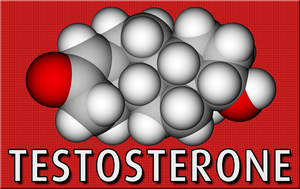Video Link: https://vimeo.com/475316376
Video Download: Click Here To Download Video
Video Stream: Click Here To Stream Video
Most people don't realize how important Hormone Balance is to maintaining the day-to-day quality of life. Diet, exercise, and other factors contribute greatly to Hormone Optimization.
While many are concerned about the long-term consequences of health issues  such as HGH Deficiency and Low-T, Hormone Imbalance can lead to several short-term symptoms that can significantly impact your wellness, including depression, headaches, bloating, lack of concentration, and fatigue.
such as HGH Deficiency and Low-T, Hormone Imbalance can lead to several short-term symptoms that can significantly impact your wellness, including depression, headaches, bloating, lack of concentration, and fatigue.
By taking steps to improve your Hormone Balance, you can mitigate these issues and get your mind back on what matters!
Eat Better for Hormone Balance
Diet is among the tried and true ways to get Hormone Levels back on track. Control your Carbohydrate intake and make sure you get sufficient protein and healthy fats in your daily routine.
Make sure most of the carbohydrates that you do eat come from complex sources. Refined sugar, white bread, and white rice can all wreak havoc on your blood sugar. To control your hunger and further protect your blood sugar, make sure you get plenty of fiber.
While eating too much is a problem, also be aware that your body needs nutrients to protect Hormone Balance and Wellness! Find quality sources of Antioxidants, such as green tea, and think about limiting your alcohol intake.
Alleviate Inflammation to Improve Hormone Balance
Inflammation is largely caused by the overabundance of a hormone known as Cortisol.
This stress hormone triggers Inflammation and stress. Cortisol is made of the same building blocks as many other essential Hormones, including HGH and Testosterone.
One of the best tactics to naturally help reduce Inflammation is to increase the intake of Omega-3 Fatty Acids and Fiber.
intake of Omega-3 Fatty Acids and Fiber.
Exercise and smart eating will also help keep Inflammation in check. Some other natural options for Inflammation Control include Resveratrol, Ginger, Fish Oil, and Turmeric.
Control Stress to Enhance Hormones
As we mentioned previously, Inflammation is closely linked to stress. Humans experience both physical and emotional stress, and both can be terrible for health.
Stress puts our bodies and minds in a fight-or-flight mode, which prioritizes the immediate over the long-term. Stress sacrifices long-term health in an effort to protect us in the short-term.
There are several ways that you can keep stress in check. It's important to maintain control of your life.
Understand your capacity, understand your limitations, and work within your boundaries.
Take time out of your hectic schedule to do things that you enjoy, such as gardening, spending time with friends, or just sitting in the shade with a good book. Several scientifically proven ways to mitigate stress include breathing exercises, yoga, mindful meditation, and even counseling.
Reduce Exposure to Toxins for Hormone Health
These days, we're practically bombarded with potential exposure to toxins, which can lead to Hormone Imbalance.
These chemicals are referred to as Endocrine Disrupting Chemicals. We're also exposed to natural and artificial hormones in the food that we eat.
If you're concerned about Hormone Balance, make an effort to seek out meat and dairy products that were produced without hormones and other chemicals to stimulate growth. If you're a smoker, be aware that cigarettes are loaded with chemicals that interact negatively with your hormones.
Also, be wary of plastics that contain BPA and other Endocrine Disruptors. These products can leach chemicals, especially when heated.
Sleep Better to Alleviate Hormone Imbalance
Deep and healthy sleep is one of the most critical factors which promote Hormone Balance. Human Growth Hormone, for example, is produced mostly at night.
The body utilizes many hormones to help in the healing and recovery process. It's also the time when our brains focus on memory retention.
If you're getting poor sleep, your body isn't going through the natural hormone cycle, which keeps us happy, healthy, and focused.
Many factors can disrupt sleep quality. Our minds are trained to respond to blue light with wakefulness.
Televisions and cell-phone screens trick the brain into wakefulness. Limit exposure to bright artificial light in the hours before bedtime.
Also, don't eat a huge meal right before bed, because it impacts digestion and leads to weight gain. Ideally, you should eat a modest meal a couple of hours before bed, just to make sure your body has the nutrients available for healing and renewal.
Exercise to Boost Healthy Hormones
A Sedentary Lifestyle is a primary contributor to obesity, diabetes, Osteoporosis, and several other disorders associated with Hormone Imbalance.
 Having a weekly exercise routine does wonders for your health, even if it's only going for daily walks.
Having a weekly exercise routine does wonders for your health, even if it's only going for daily walks.
The human body responds to strenuous activity with the release of Testosterone, which strengthens bones and muscles. Our bodies produce Human Growth Hormone to repair tissues and build muscle.
Exercise also helps regulate Ghrelin and Leptin, both of which play central roles in hunger. We suggest High-Intensity Interval Training if you're interested in maximizing Hormone Balance.
Contact Us Today For A Free Consultation

- Cano's spokeswoman was client of Biogenesis [Last Updated On: January 25th, 2024] [Originally Added On: May 4th, 2013]
- Documents: Cano associate was client of clinic [Last Updated On: January 25th, 2024] [Originally Added On: May 4th, 2013]
- Sources: Cano associate was Biogenesis client [Last Updated On: January 25th, 2024] [Originally Added On: May 4th, 2013]
- Early Stage Testicular Cancer - Surveillance Is Best Follow-Up Strategy [Last Updated On: January 25th, 2024] [Originally Added On: May 18th, 2013]
- 2013 Endocrine Function Testing Market in Europe: Hospitals, Commercial Labs, Physician Offices, Ambulatory Care Centers [Last Updated On: January 25th, 2024] [Originally Added On: June 14th, 2013]
- Europe Endocrine Function Testing Market Studied by VPG in Cutting-Edge Report Now Available at MarketPublishers.com [Last Updated On: January 25th, 2024] [Originally Added On: June 18th, 2013]
- A More 'Natural' Version Of IVF Proves A Success [Last Updated On: January 25th, 2024] [Originally Added On: June 19th, 2013]
- Weight Loss Cure with Metabolic Cookbook - Video [Last Updated On: January 25th, 2024] [Originally Added On: July 12th, 2013]
- Weight Loss Drops - Are They A Scam? - Video [Last Updated On: January 25th, 2024] [Originally Added On: July 12th, 2013]
- Abbott Features Solutions to Help Labs Prepare for the Evolving Healthcare Landscape at the American Association for ... [Last Updated On: January 25th, 2024] [Originally Added On: July 30th, 2013]
- How Testicular Cancer Is Diagnosed | Testicular Cancer - Video [Last Updated On: January 25th, 2024] [Originally Added On: August 11th, 2013]
- 2014 Opportunities in the US Clinical Chemistry and Immunodiagnostics Markets [Last Updated On: January 25th, 2024] [Originally Added On: September 27th, 2013]
- Serie A - Doping ban overturned on cancer sufferer Acerbi [Last Updated On: January 25th, 2024] [Originally Added On: January 8th, 2014]
- Health Highlights: Jan. 8, 2014 [Last Updated On: January 25th, 2024] [Originally Added On: January 8th, 2014]
- Testosterone Replacement Therapy [Last Updated On: December 9th, 2023] [Originally Added On: January 19th, 2014]
- Paid Hepatitis C Clinical Trial Now Enrolling at Avail Clinical Research near Orlando, Florida; Accepting M/F Patients ... [Last Updated On: January 25th, 2024] [Originally Added On: January 22nd, 2014]
- Luteal Phase: The Uterine Lining Phase - Video [Last Updated On: January 25th, 2024] [Originally Added On: April 10th, 2014]
- Doping case against Acerbi dismissed [Last Updated On: January 25th, 2024] [Originally Added On: April 15th, 2014]
- Drugs that Cause Gynecomastia [Last Updated On: January 25th, 2024] [Originally Added On: May 14th, 2014]
- Illegal Online Meds Targeted in Worldwide Crackdown, FDA Says [Last Updated On: January 25th, 2024] [Originally Added On: May 24th, 2014]
- Biogenesis' Bosch surrenders in PEDs case [Last Updated On: January 25th, 2024] [Originally Added On: August 5th, 2014]
- Duchess of Cambridge 'hugely disappointed' after being forced to pull out of yet another engagement due to morning ... [Last Updated On: January 25th, 2024] [Originally Added On: October 1st, 2014]
- Kate, Duchess of Cambridge dazzles in baby blue gown at the Natural History Museum [Last Updated On: January 25th, 2024] [Originally Added On: October 22nd, 2014]
- 'They're poisoning us'. How religious leaders are hindering vaccination programmes across the world [Last Updated On: January 25th, 2024] [Originally Added On: November 14th, 2014]
- Poor prognosis germ-cell tumours are only cured in about half of patients. We aimed to assess whether treatment ... [Last Updated On: January 25th, 2024] [Originally Added On: November 23rd, 2014]
- Nursing a Grudge [Last Updated On: January 25th, 2024] [Originally Added On: January 22nd, 2015]
- Hormone Levels in Men - Testosterone Injections [Last Updated On: November 30th, 2021] [Originally Added On: September 9th, 2016]
- Human Growth Hormone May Actually IMPROVE Quadricep Strength After Reconstruction of Torn ACL [Last Updated On: September 23rd, 2024] [Originally Added On: June 22nd, 2020]
- Your Birthplace Heavily Influences Your Future Testosterone Levels [Last Updated On: August 19th, 2024] [Originally Added On: March 6th, 2021]
- Both High and Low Levels of Testosterone Correlate With Cardiovascular Issues in Men [Last Updated On: September 27th, 2024] [Originally Added On: April 14th, 2021]
- Breaking News: Testosterone May Be the Answer to Autoimmune Diseases [Last Updated On: August 24th, 2024] [Originally Added On: May 14th, 2021]
- Non-Stop Cravings for Protein? Blame it on Your Gut Hormones! [Last Updated On: September 13th, 2024] [Originally Added On: May 21st, 2021]
- Testosterone Therapy Could Help Quell Your Asthma Attacks [Last Updated On: September 12th, 2024] [Originally Added On: June 20th, 2021]
- BPA Here, BPA There, What’s the Reason for the Scare? [Last Updated On: September 16th, 2024] [Originally Added On: June 29th, 2021]
- Low Testosterone Linked to Depression and Suicidal Ideation [Last Updated On: August 25th, 2024] [Originally Added On: July 5th, 2021]
- It’s True: Men Today Have Less Testosterone Compared to Men a Generation Ago [Last Updated On: September 19th, 2024] [Originally Added On: July 13th, 2021]
- Losing Weight with Baratric Surgery Reverses Low Testosterone [Last Updated On: October 2nd, 2024] [Originally Added On: February 8th, 2022]
- Do Larger Testicles Make More Testosterone? [Last Updated On: July 24th, 2024] [Originally Added On: May 3rd, 2022]
- Fact or Myth: Have Testosterone Levels Really Dropped by 50% Just in the Past Two Decades? [Last Updated On: August 14th, 2024] [Originally Added On: June 4th, 2022]
- Another Analysis Shows No Cardiovascular Risks With Testosterone Therapy [Last Updated On: October 6th, 2024] [Originally Added On: November 27th, 2022]
Word Count: 813




















